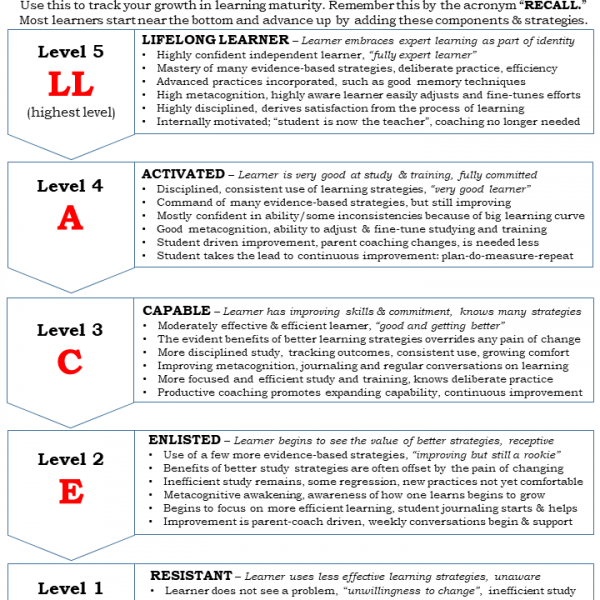
6 Useful Tips for Motivating Teenagers

Reading time: 10 minutes
How can a smart parent (like you) help your teen to stay motivated in his or her studies? It comes from your ongoing conversations to help them see a bigger picture.
First, we must acknowledge when we talk about motivation, this is intrinsic to the individual. So, in reality, we can’t make our kids motivated, we create the conditions for that motivation. We influence and encourage it, but they pull it from inside.
Here are some tips you can use to connect to and boost teen motivation. These tips apply to talking about learning, but they can fit just about any other conversation on getting better.
1. Accord them the high status they want.
Research tells us that the adolescent brain is hypersensitive to issues of status. This means as kids grow up you need to modify some of your conversational habits to move with them. Teens need to be addressed differently than younger children.
What connects with them? In your conversations, particularly where you want to give feedback about better study habits and smarter learning, introduce the topic as if you were addressing someone with high social status, and a person you fully respect. Remember, when kids feel disrespected, nagged, spoken down to, pressured, or infantilized you have lost the battle and ability to influence and motivate.
Of course, these are not your intentions, but the perceptions of the child are what matter to productive conversations and you must be sensitive to this if you want to get through to them.
Following this idea, when you address teens with high status, you are trying to encourage them to feel more competent. Begin your developmental conversations by praising those study practices they do well, and openly recognize them for hard work and independent effort. Tell them how much you admire this effort and hard work.
Another technique to address the need for high status is to first ask for permission to proceed and have this conversation. “I’d like to talk to you about (topic name). Do you have a couple of minutes to discuss it?”
Another important technique to convey your respect for status is to actively listen to your child. Don’t be quick to dismiss their concerns, don’t ignore their objections as insignificant, and don’t take the tone these are mere excuses for not studying.
2. Provide them with a sense of control.
According to Self-Determination Theory, developed by psychology and motivation experts Deci & Ryan at the University of Rochester, teens who feel they have control over their activities are more motivated. This is not a surprising finding, but it is something that might be easy to overlook at times.
Children, especially teenagers, will not be motivated when they feel controlled or pressured to study. They need to believe their desire to study willingly comes from within themselves.
This means your conversations are more effective using your coaching mode where your tools are supporting, listening, guiding by asking lots of open questions, and focusing on collaboration. The coach within you keeps the teen in control.
When teenagers are allowed the autonomy to decide what activities they want to engage in, within reasonable limits, they will be self-driven to do things they deem valuable.
Unfortunately, presenting information rationally and calmly can be perceived as nagging to teens. Research shows that parental nagging activates anger-related regions in teenagers’ brains, and it reduces activity in those brain regions related to executive function, planning, and behavior change.
3. Improve your child’s command of learning as a skill
Children are born with lots of natural curiosity, but as they grow, they can’t rely on this alone and need to actively acquire the skills necessary for f learning. When you have the command of better learning methods and techniques this leads to better self-motivation.
The Self-Determination Theory also suggests that having this sense of competence can boost one’s motivation. This provides you the opportunity to create a virtuous cycle in the child with its positive self-reinforcing loop where confidence leads to higher motivation, which leads to greater success, which in turn causes greater confidence, and so on.
The secret ingredient to competence and motivation is giving your child a full toolbox of scientifically validated learning strategies. Coach learning as part of your homeschool curriculum. Effective learning strategies are important because they not only lead to more rapid learning, they instill confidence.
When kids discover they have a sense of mastery over their ability to learn, motivation is greatly enhanced.
The trick is simple – you have to know about these better strategies so you can coach them. Learning kills do not rub off from one child to the next, there is no magical osmotic transfer. Kids have to learn and practice them just like any other skill.
Plan your lessons and assignments to match the Goldilocks effect. This sense of mastery over learning best develops when your child tackles a task easy enough to successfully complete it, but just difficult enough for them to feel challenged.
This means you are constantly making adjustments to learning to stay within this ever-changing not-too-hot and not-too-cold sweet spot as your child’s knowledge and skills grow. The wise parent adjusts by creating situations that encourage successful outcomes and avoids pushing too hard or overloading kids with work where the prospect of failure increases.
Your role as a learning coach will help your teenagers master the skills of learning. This will help bolster their self-esteem in addition to their sense of competence.
4. Use open questions to support your helping interventions.
We ignore this advice to our own peril – do not tell teenagers what to do. We already know this, but sometimes it’s hard to maintain. We make our conversations productive when we invite our kids to discover what the information means to their ability to learn and to the choices they make.
Be wary of the so-called “big talk” approach for influencing teens because this can cause a stressful reaction, which will be counterproductive, so your best strategy is to ease into your conversations delicately.
When you initiate a conversation to try to change or shape someone’s behavior, psychologists call this making a behavioral intervention. It’s a positive term, you are intervening in a supportive manner, as you initiate a thoughtful two-way conversation with the good purpose of helping your child gain new insight.
Open-ended questions are one of your best tools for making these interventions, they allow you to guide the conversation while still allowing the teen to feel in control. It’s a simple technique. For example, ask: “Do you want to talk about why you feel so demotivated when doing math problems?” or “Do you want to talk about why you are having difficulties remembering historical dates?”
Remember that your open-ended questions are welcome door openers that invite conversations that can lead to new thinking, and not a tool for manipulation.
And it’s a good idea to throw in a super-open-ended question like, “Or maybe there is something else you would rather discuss? Or the simple but powerful, What do you think?”
If the teen says they don’t want to talk, let it go for the time. Force never works with learning, but your persistence does. Come back at a better time.
Let’s not forget that teenagers are motivated by totally different things than we are. We want them to do the things that are best for their education and well-being; they want to do the things that bestow on them the highest social status. This is not an unresolvable mismatch. You bridge it with your conversational skills.
5. Reframe the conversation using the power of “future self” thinking.
We are most influential when we appeal to teens’ existing motivations, rather than trying to get them to feel motivated by our goals for them. There are multiple ways to do this.
One of my most productive interventions for motivating adolescents is to get them to think in two visions of themselves – present-self and future-self. In these discussions, the present self is treated as a temporary state in your journey to the future. It is a work in progress. The future self is discussed as a third-person persona who they desire to be.
The key to a motivating conversation is maintaining the reference to the third person. Both of you talk in terms of “he” or “she” not you. This encourages stepping back and looking at the future from a different perspective. This can be pretty powerful because by talking about yourself in the third person, you remove much of the ego factor. It opens the door to reflection and appeals to high status.
Asking a teen to consider his future self is a projective technique you use to connect them to what they are learning now to the individual they aspire to be.
The key to motivation is helping the child create this positive clear visualization of what the future self looks and feels like when they have fully developed their knowledge and skills. These are the subjects you are teaching now. Then picture the many personal benefits of having acquired this large body of skills and knowledge.
Learning opens the door to everything.
But know you can’t give someone that image of future-self because this belongs to them. It comes from within. But you can motivate by encouraging free thinking about the exciting possibilities in their own personal vision.
The vision of an empowered and independent future is highly motivating.
6. Encourage dopamine replenishing activities
Last, don’t overlook the physiology of learning. Many motivational problems are caused by running out of fuel.
Dopamine is our fuel for high-performance activities, and this includes learning. It’s harder to stay motivated when you feel flat. And most of us have difficulty recognizing when this is happening to us.
One way to help teens enhance their dopamine levels is exercise. Physical activities can help regulate dopamine release in the brain.
Exercise is related to enhanced cognitive functioning and brain plasticity. In addition, exercise can improve teenagers’ mood and mental wellbeing. Having a better mood allows easier relationship building and better brain functioning facilitates the teenager’s sense of personal mastery.
We talk about the Pomodoro technique and the importance of taking frequent breaks to re-energize your brain. Incorporate physical exercises during even short breaks to boost your teen’s health and motivation to learn.






